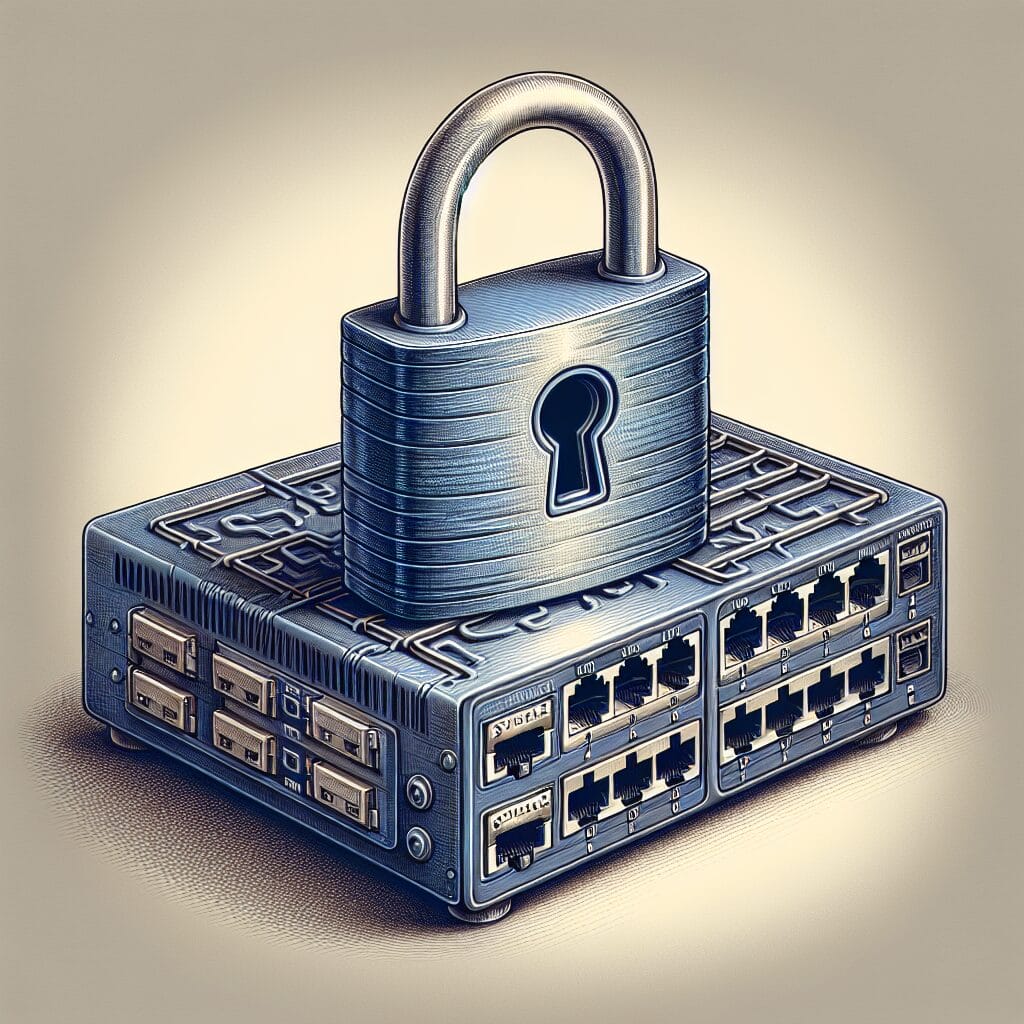
Introduction
Network Access Control (NAC) is a crucial component of business security. In today’s digital age, where cyber threats are becoming increasingly sophisticated, businesses need robust security measures to protect their networks and sensitive data. NAC provides a comprehensive solution that helps companies control and manage network access, ensuring that only authorized users and devices are granted access. This article will explore what NAC is, its importance for business security, how it can prevent unauthorized access to networks, its role in protecting sensitive data, the benefits of implementing NAC, and how to choose the right NAC solution for your business.
What is Network Access Control (NAC)?
Network Access Control (NAC) is a security solution allowing businesses to control and manage network access. It ensures that only authorized users and devices are granted access while blocking or quarantining unauthorized or non-compliant devices. NAC authenticates users and devices before giving them access to the network. It also enforces security policies, such as requiring strong passwords or installing security patches, to ensure that devices connecting to the network meet specific security standards.
Different types of NAC solutions are available, including agent-based and agentless solutions. Agent-based NAC requires the installation of software agents on devices to enforce security policies and monitor their compliance. On the other hand, Agentless NAC uses network-based technologies to assess the security posture of devices and enforce security policies without the need for software agents. Both types of NAC solutions have advantages and disadvantages, and the choice between them depends on the specific needs and requirements of the business.
The Importance of NAC for Business Security
NAC is crucial for business security for several reasons. Firstly, it helps prevent unauthorized access to networks. By authenticating users and devices before granting access, NAC ensures that only authorized individuals and devices can connect to the network. This helps protect against external threats, such as hackers trying to access sensitive data or launch attacks on the network. It also helps prevent internal threats, such as employees or contractors with malicious intent trying to gain unauthorized access to the network.
How NAC Can Prevent Unauthorized Access to Networks
NAC can prevent unauthorized network access by enforcing security policies and authentication mechanisms. When a device tries to connect to the network, it is first authenticated to ensure it is authorized to access the network. This can be done through various methods, such as username and password authentication, digital certificates, or multi-factor authentication. Once the device is authenticated, NAC enforces security policies to ensure that the device meets specific security standards before granting access.
One of the benefits of NAC for network security is that it provides visibility and control over all devices connecting to the network. This allows businesses to identify and block unauthorized devices, such as rogue access points or unauthorized laptops, from accessing the network. It also will enable enterprises to enforce security policies, such as requiring strong passwords or installing security patches, to ensure that devices connecting to the network are secure and compliant.
The Role of NAC in Protecting Sensitive Data
NAC plays a crucial role in protecting sensitive data. By controlling and managing network access, NAC helps ensure that only authorized users and devices can access sensitive data. This helps protect against data breaches and unauthorized access to sensitive information. NAC can also help prevent data exfiltration by monitoring and controlling data flow within the network.
The Benefits of Implementing NAC in Your Business
Implementing NAC in your business can provide several benefits. Firstly, it increases security by controlling and managing access to networks. By ensuring that only authorized users and devices can connect to the network, NAC helps protect against external threats, such as hackers and internal threats, such as employees or contractors with malicious intent. It also helps prevent unauthorized access to sensitive data, reducing the risk of data breaches.
Secondly, NAC helps businesses achieve compliance with industry regulations and standards. Many regulations and standards, such as the Payment Card Industry Data Security Standard (PCI DSS) and the Health Insurance Portability and Accountability Act (HIPAA), require businesses to implement controls to protect sensitive data. NAC provides a comprehensive solution that helps companies meet these requirements by controlling and managing access to networks and sensitive data.
Thirdly, NAC improves efficiency by automating granting and revoking access to networks. Instead of manually managing network access, which can be time-consuming and prone to human error, NAC automates the process by authenticating users and devices and enforcing security policies. This helps businesses save time and resources, allowing them to focus on other essential tasks.
NAC vs. Traditional Security Measures: Which is Better?
NAC and traditional security measures, such as firewalls and antivirus software, play essential roles in business security. However, they have different advantages and disadvantages, and the choice between them depends on the specific needs and requirements of the business.
One advantage of NAC over traditional security measures is that it provides granular control over network access. While firewalls and antivirus software can help protect against external threats, they do not offer the same control over who can access the network. On the other hand, NAC allows businesses to authenticate users and devices before granting them access, ensuring that only authorized individuals and devices can connect to the network.
Another advantage of NAC is that it provides visibility and control over all devices connecting to the network. This allows businesses to identify and block unauthorized devices, such as rogue access points or unauthorized laptops, from accessing the network. Traditional security measures, such as firewalls and antivirus software, do not provide the same visibility and control over devices connecting to the network.
However, there are also disadvantages to NAC. One drawback is that it can be complex and time-consuming to implement. NAC requires businesses to define and enforce security policies, authenticate users and devices, and integrate with existing network infrastructure. This can be a complex process that requires expertise and resources. Traditional security measures, on the other hand, are often easier to implement and manage.
Conclusion
In conclusion, Network Access Control (NAC) is a crucial component of business security. It helps businesses control and manage network access, ensuring that only authorized users and devices are granted access. NAC is essential for business security because it helps prevent unauthorized access to networks, protects sensitive data, and helps businesses comply with industry regulations and standards. By implementing NAC, companies can increase their security, achieve compliance, and improve efficiency. Companies need to choose the right NAC solution for their specific needs and requirements, considering factors such as the size and complexity of their network infrastructure, the authentication methods and security policies that need to be enforced, and the reputation and track record of the NAC solution provider.
